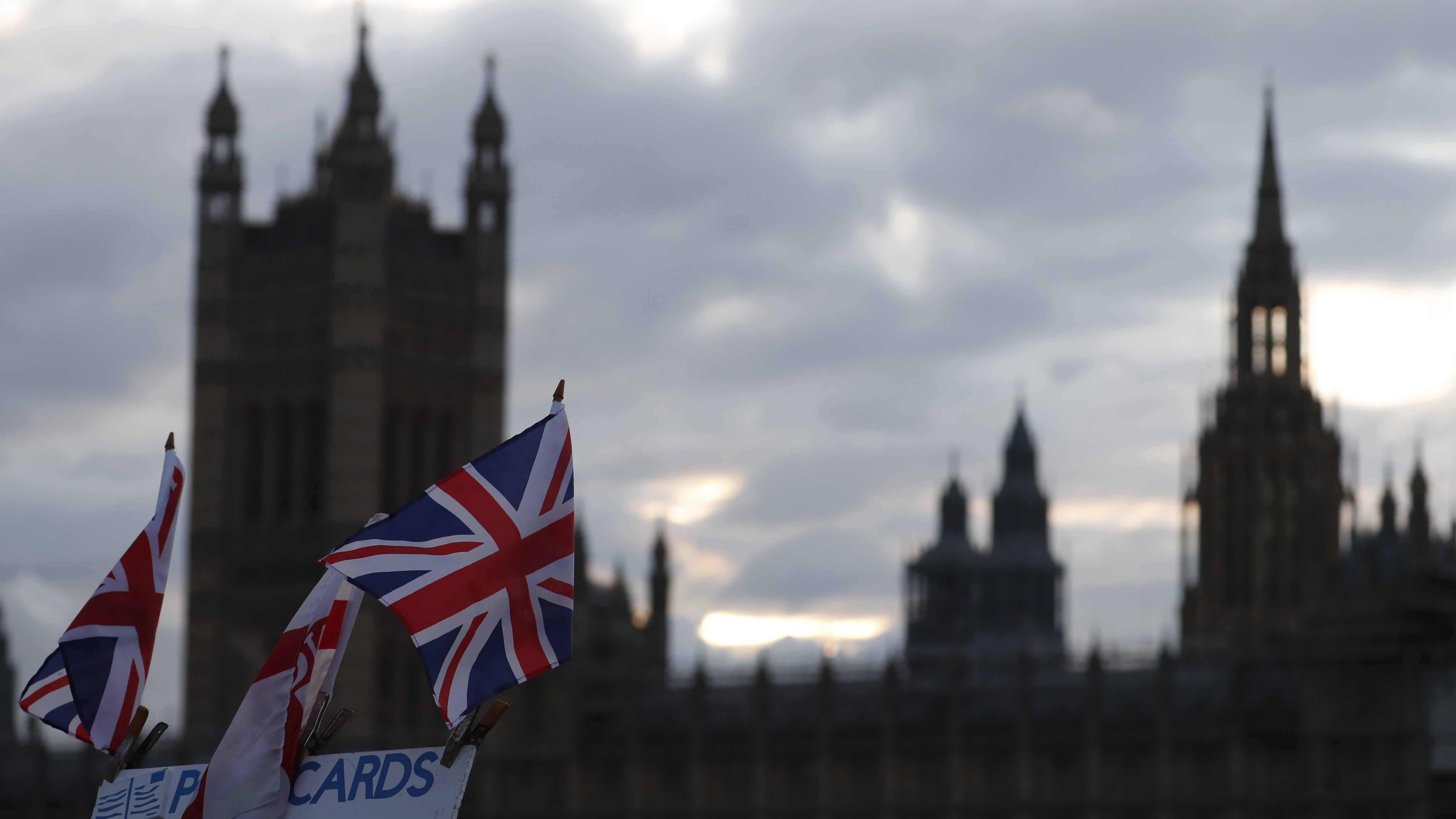
Editor's note: Tom Fowdy is a British political and international relations analyst and a graduate of Durham and Oxford universities. He writes on topics pertaining to China, the DPRK, Britain, and the U.S. The article reflects the author's opinions, and not necessarily the views of CGTN.
The Mail on Sunday, sister paper of the Daily Mail and heavily affiliated with the Conservative Party, recently published a scathing feature editorial against China with the agenda of empowering right wing factions dissatisfied with Boris Johnson's Foreign Policy. Titled "No 10 Fury at China's Lies" the paper said that some British cabinet ministers have sought for a "reckoning" against Beijing after the COVID-19 crisis is other.
The piece proceeded to whip up misleading racist imagery claiming that "wildlife markets" were still being opened in China which sold cats and dogs, while also inserting a foaming column by former party leader Iain Duncan Smith titled "we must stop kowtowing to these despots" and demanding a tougher stance on China.
The Daily Mail as a publication is not known for its honesty or accuracy, but it is known for reflecting factional conflicts inside the Conservative Party and whipping up xenophobia. Angered by Boris's conciliatory policy against China and its willingness to incorporate Huawei into the UK's 5G network, many on the party's right have sought to overturn the prime minister's policy and push a more hawkish stance against Beijing.

Now, similar to what has happened in the United States, the COVID-19 outbreak in the United Kingdom is being used as a justification to push this agenda. However, as with Brexit, this position assumes a remarkable overestimation of Britain's foreign policy capabilities and place in the world. Already alienated from the EU, Britain would stand to lose remarkably from confronting Beijing.
Addressing the claims in the article first, the Mail as ever is spreading misinformation. Attempting to blame put blame on Beijing for a "cover-up," it made a claim that scientific advisors told the prime minister cases in China were in fact 14 times higher than reported. If such insider information was really true, then why is the article claiming Downing Street was caught off guard? Why didn't they take further actions? Why did they not ban flights or incoming nationals from China? Why did they contemplate using a "herd immunity" strategy in the early stages of the outbreak? Why did Boris call Chinese President Xi Jinping and say he "loved China?" The facts don't meet this narrative of "lying and betrayal" at all and contradict the claims.
Secondly, the article made false claims to its readership about "animal markets" in China. It claimed that already these markets were "reopened" and were selling "cat and dog meat" (a racist generalization) posting photos of animals in cages which were copyrighted from Red Door News of the South China Morning Post.
Tracing these images back to the source, they in fact came from a piece in 2015 whereby a given journalist was writing about cat markets in Vietnam. The mail had effectively used photos from another country several years ago and passed them off as a contemporary event in China. This is not the first time the Daily Mail has done this, earlier this year it posted a picture of purported "bat soup" stating that it was based in Wuhan, when in fact the dish was in the Pacific Island nation of Palau.
But why is it doing this? As set out above, the paper is attempting to push a factional struggle in the Conservative Party against Boris Johnson by stoking up hatred, prejudice and anger against China. One of the key players in this push, as set out in his column, is former cabinet minister and party leader Iain Duncan Smith who is known for his strong Eurosceptic views.
The former leader had formulated a unsuccessful rebellion against Boris three weeks ago in the bid to try and push for Huawei's exclusion from the country's 5G network, also penning several op-eds demanding it be banned. Another leading figure in this push is Parliamentary Foreign Affairs Select Committee leader Tom Tugenhadt, who also pushes for hawkishness against China and closer alignment with the U.S.
The problem is though, if these individuals are allowed to get their way the consequences for Britain will be catastrophic. This is a country which has already alienated one major trading partner. It cannot afford to lose another in Beijing. The calculation that Britain can somehow "retaliate" against China is not realistic, given their GDP is already five times the size of the UK's, this mentality stemming from a persistent nostalgic sentiment amongst such right-wingers who believe the country is still a major world power and a judge and juror of the world.
The prime minister however, is not in a position of political weakness. He must resist and offset attempts by the party right to derail Britain's highly important relationship with China. If not, then isolation and irrelevance surely beckons for the country.
(If you want to contribute and have specific expertise, please contact us at opinions@cgtn.com.)